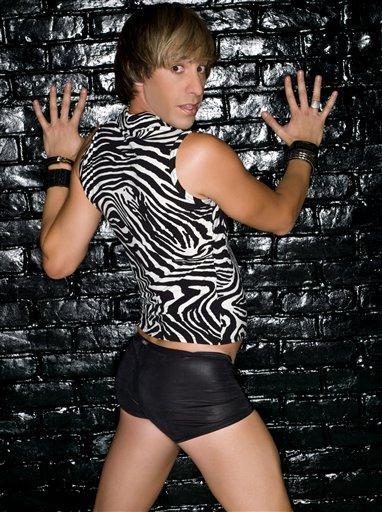Sasha Baron Cohen’s first large scale movie, “Borat,” was a tremendous financial and critical success.It both entertained audiences and also functioned as a tongue-in-cheek examination of xenophobia in the United States. Those looking for that same combination in Baron Cohen’s new film, “Bruno,” are going to have to look a little harder. “Bruno” does challenge American society, but its attempts to lampoon homophobia while generating laughs confuses more than it enlightens.If you’ve heard anything about the movie during the last few weeks, you’ve probably heard some rather polarized opinions on it.Most people seem unable to find a middle ground with the film and can’t decide if the movie hurts the national view on the gay community and culture, empowers it or does nothing except make people laugh at the movies excessive use of penises.Baron Cohen plays Bruno, a German fashionista trying to get work in the U.S. after his fashion commentary show is canceled in his home country. Bruno’s campy actions throughout the film attract the derision of nearly everyone he meets until he figures out the problem — he’s gay. The remainder of the film involves more wacky escapades as Bruno tries to straighten-out and eventually embrace his homosexuality.There are some really funny moments, but those moments all float in the tension that surrounds the U.S.’s relationship with gay culture.The problem is “Bruno” doesn’t present a clear and concise message about those relations; it splits its views into three different perspectives that all fail to accomplish anything.The first view is that “Bruno” hurts the gay culture because it glamorizes negative stereotypes.The movie does present a rough stereotype of a gay male, particularly an obsession with sex and a heavy focus on material culture.But the images used are completely ridiculous, and it’s highly unlikely that anyone who wasn’t already knee-deep in the anti-gay movement would ever believe any of Bruno’s antics to be real.The second view is that “Bruno” helps national impressions of gay culture by exposing the homophobia and ignorance of the average American in the same way that “Borat” exposed xenophobia in the heartland.Again, “Bruno” does expose the bigotry and homophobia of several Americans, but many of the bits and antagonistic actions that Bruno performs would be problematic to nearly anyone. The worst of these antics are Bruno’s frequently unwanted sexual advances that are so aggressive, they’d be terrifying regardless of your sexual orientation.The final argument is that “Bruno” does nothing and it’s just a funny movie.This is the argument that appeals to the population that most needs to think about meaning in this film. “Bruno” muddles the image of homosexuals and the gay community and actually makes the whole line blurrier. That will most likely keep people from thinking actively about the way the media and most of America relate to gay culture.Given its mixed message, “Bruno” doesn’t seem to do much except confuse people. But that confusion is perhaps the best thing Bruno could have given us.”Bruno” challenges us in a way that I don’t believe it was intended to do, and that’s because “Bruno” is the kind of film that demands a reflexive attitude.We have spent several years looking outwardly at the way various facets of society reflect and alter relations between various groups of people.In that way, the gay culture and community are little different than many other marginalized groups — they are often looked at as a unified other.By looking outwardly, we create abstractions that push people further and further away from each other. We then criticize these abstractions without empathy.From there we measure these abstractions and in turn look for them to fit into the little niche we carved out for them in society.People often try to look for easy answers as to how all of these concepts and ideas can fit together, but they will never find them because easy answers don’t exist anymore.”Bruno” is a great example because within the film there are legitimate cases for all three arguments, even when those arguments conflict with each other.Bruno helps, hurts and does nothing to the gay community and its relations with the rest of the country all at the same time.I don’t know what Baron Cohen’s plan was when he filmed “Bruno.” I suspect the idea of making money was equally important as exposing homophobia in the U.S. — but that’s a whole different column.What’s most important here is that “Bruno” illustrates the complexity of the situation that we are in and should remind us of the human element that is always present.The fact that Bruno is a caricature makes it evident that sometimes looking inward for examples of society’s problematic relationships is more important than looking outward. —–Contact Skylar Gremillion at sgremillion@lsureveille.com
Socially Significant: ‘Bruno’ offers mixed messages on gay community
July 21, 2009

In this film publicity image released by Universal Pictures, Sacha Baron Cohen portrays the title role character in “Bruno.”






